SEO or Search Engine Optimisation is the process of trying to improve your website’s organic (or non-paid) ranking on a search engine. The most popular search engines are Google, Bing and Yahoo and they have an international market share of 64%, 21% and 12% respectively. When we talk about search engine rankings, we are referring to the order in which websites are listed when a keyword is searched. For example, if we search for “dog food” the top results are pictured below.

As you can see by the small green box with “Ad” in it, mypetwarehouse.com.au is a paid advertisement, set up through Google Adwords. Whereas, petbarn.com.au is the first organic search ranking, meaning it is ranked number 1 on Google for the keyword “dog food”.
So what does Pet Barn have to do to get ranked number 1? Unfortunately, it’s not simple, a lot goes into it. So, we have decided to provide an overview of the nuts and bolts of SEO here, to explain it in a simply:
Keywords are the key
If you want potential customers to find you online, you have to know what they are searching for. For example, you may have found us by searching for “web designer” or “marketing agency”, you may have even included the words Newcastle or Newcastle, NSW into your search to narrow it down.
For your website to stand out against the 100 billion+ Google search queries each month, you must appropriately optimise your website content with keywords.
The first step is to identify which keywords to focus on. There are several ways to do this. Google provides a very handy Keyword Planner tool that we definitely recommend using. There are many SEO and keyword programs you can use to do your research. Lastly, and perhaps most importantly, ask your customers, and look at your own Google Analytics to see what your current customers are searching for.
Once keywords and phrases are identified, it is important to make them prominent on your website. This means in your content (especially your page headers) and in your URLs. To learn more about the importance of keywords and keyword research, we recommend reading this handy guide.
Link, link, link
Search engines like when other websites link to yours. The more sites that link to you, the more important and relevant your website seems according to their algorithms.
The best way to build links to your site is through networking online. Think about guest blogging on another website about your expertise, creating an infographic or adding your website to an online directory. Social media marketing can also be great for linking. When properly used, sites like Facebook, Twitter, Pinterest, and Instagram can be helpful tools in acquiring site traffic. If you create content that other people want to share, they will be creating more links to your website.
When working with links, it is important that you avoid using Black Hat SEO techniques. They are unethical and you will get penalized for it.
Optimise your site structure
To perform better in search engine listings, your most important content should be in HTML text format. When content is shown as an image and Flash file, they are often ignored or devalued by search engine crawlers. You need to ensure that your website content can be easily read (or crawled) by the search engine. This means that title tags, meta tags, meta descriptions, site index and URL structure should all be evaluated and taken into consideration when building a new website or publishing web content on an existing site.
That’s the nuts and bolts of SEO, but there is a lot more to it and you can get a lot more in depth with your SEO, depending on your industry. We would love to take a look at your website and see how we can help it rank higher in the search engines. If this is something you are interested in, get in touch.





